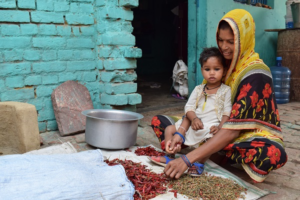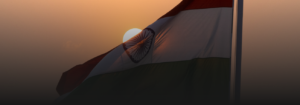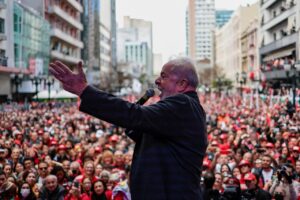In the early hours of April 26, Ravichandran Ashwin, one of India’s leading cricketers, took to social media and confirmed he’s temporarily opting out of the ongoing edition of the Indian Premier League (IPL). Ashwin’s withdrawal came hours after his team finished the Chennai leg of their schedule and was due to depart for their next one in Ahmedabad. Citing the worsening conditions in the country amidst the second wave of the COVID-19 pandemic, Ashwin has decided to extend support to his immediate and extended family during an unprecedented nationwide health crisis.
It is not that the overwhelming nature of the current situation suddenly dawned on Ashwin. He had already once raised strong concerns over the worsening situation and made himself available to amplify calls for help through his reasonably large social media reach. Of course, there is only so much a professional athlete could do while stuck in a bio-secure bubble and expected to deliver performances matching the astronomical sums being paid in a cash-rich tournament like the IPL. Ashwin’s helplessness and eventual withdrawal is most certainly not an anomaly and is instead reflective of what most players involved in the tournament are going through right now.
Ashwin isn’t the only one dealing with this moral dilemma though. Nitin Menon, the only Indian umpire on ICC’s elite panel, has left duties and stepped out of the bubble for personal reasons. Australian umpire Paul Reiffel too preferred returning but is only staying since he failed to find a commercial airline operating between the two countries. At least three Australian players have already returned home amidst uncertainty over their country’s border policies and strict quarantine requirements for those returning from India. There have been reports suggesting the entire Australian contingent including coaches, support staff, and commentators might cut their stay short. The English may have similar concerns too. It increasingly appears shifting the tournament’s base away from India might have been a prudent call after all, despite not being a particularly popular one.
Last year, after more than a six-month delay owing to the pandemic situation, the IPL was finally hosted in the UAE under very strictly adhered guidelines. After the successful completion of the tournament, the BCCI president Sourav Ganguly in an interview had confirmed the board was committed to bringing the tournament back home the following year. Back then, it was hoped the pandemic would have considerably subsided by the planned dates and the organisers even aimed to bring crowds back to the stands.
That of course, didn’t go according to plan. In complete contrast to what was hoped, the second wave has ravaged India across its length and breadth. The healthcare infrastructure has completely collapsed in its biggest cities and resources are running dry by the minute. But at no point in the buildup to the tournament, despite the consistently deteriorating state of affairs, did the BCCI consider revising its original plans.
And while one may sympathise with the commercial hit the organisers take by delaying one edition of the tournament or by playing it in another country, going through with it under these circumstances feels more like not compromising on their prestige. It’s almost as if they are counting on a successfully completed tournament across six major cities in the middle of a deadly pandemic being the focus of a case study in risk planning and logistical management at some point in the future. This is very much in consonance with the approach of the Indian government in its handling of COVID, 19 where image management has trumped every other aspect of public policy.
Ever since the BCCI underwent structural changes in 2019 and home minister Amit Shah’s son Jay Shah was appointed the board secretary, Indian cricket has practically been viewed as an extended fiefdom of the ruling party. The father-son duo, with blessings from the prime minister, has turned their hometown Ahmedabad into the de facto power centre of Indian cricket in no time.
The cricketers today are extremely willing participants in amplifying the government’s narrative on politically sensitive matters. Cricket has very effectively been turned into a pitch for settling political turf wars, which one side is overwhelmingly winning at the moment. And to that end, continuing the IPL uninterrupted aids the exercise of perception management. That a tournament of this size and relevance carries on despite the dystopian realities of the day helps sell a favourable narrative that the government is firmly in control of the situation.
It is important to remember that ahead of the general elections in 2019, Prime Minister Narendra Modi on his campaign trail had said he takes great pride in not having to force the IPL to be shifted overseas for security reasons during the polling season, unlike what had transpired under the UPA rule in 2009 and 2014. There is no reason to believe the prime minister today is any less insecure about his strongman credentials than he was two years back.
At this point, the IPL matches are being held in Delhi and Ahmedabad – two of the worst-hit cities by the second wave. The caseload has been consistently on the rise in both these cities and people are failing everyday to avail adequate medical care. While there is little evidence to suggest the IPL bio-bubble requirements eat into the state’s public health resources, meeting the safety standards of an impregnable bio-bubble is nonetheless an incredibly expensive affair. And every city playing host to the tournament could use those additional resources – both the personnel as well as medical equipment – right now reserved for the players and staff.
But even more importantly, the very idea of a month-long spectacle unfolding daily on television screens while people are left abandoned by a helpless state makes for extremely callous and insensitive optics. For the first week or so, the coverage of the tournament feigned complete ignorance of the situation. That has changed now in that the commentators keep reminding the viewers of the importance of wearing a mask and staying indoors.
But those sermons feel somewhat empty when one realises they’re merely a balancing act to rationalise an extravaganza carrying on in all its glory where every over bowled is interspersed with the biggest Bollywood superstars selling mobile data plans, soft drinks, and expensive cars to the very people who are moving heaven and earth to land an oxygen cylinder for their loved ones.
It is also somewhat dishonest to put the onus on people to uphold a principled position and to not tune in and watch. As the legendary actor Pankaj Kapur said in a 2005 interview, television as a medium is more of an acquired social habit. People are not going to refrain from turning on their TV screens and catching up on live cricket if it’s on. It is also true that the IPL has over the years become a customary summer diet for the Indian consumer. But it wasn’t on offer last year in a far less concerning situation and people did just fine. In fact, due to the dearth of any live content, sports channels broadcast archived footage of old classics and confirming Kapur’s assertion, people watched that too.
To pretend this is the only form of distraction available to keep people’s minds off the nightmare they’re living is quite unscrupulous. Even if the size of the TV audience remains intact, hosting a tournament of this scale in the midst of an unparalleled catastrophe is entirely avoidable. The enormity of the tragedy that India is grappling with is made a mockery of when every evening people witness the system bend its back to allow a bunch of privileged individuals to carry on with their business.
The social media posts of players enjoying their stay in luxury hotels, travelling through specially arranged safe passages, and simply being able to experience normalcy in a way no one else can feel grotesque and are no less insensitive than the pictures of expensive vacations that the Bollywood stars recently got castigated for.
Tragic times require to be dealt with great empathy and care. And lifting the spirits of a distressed population has its own significance. But the only message hosting the IPL in these times is sending is that some lives are more important than others. The message plays loud and clear every evening in people’s drawing rooms. And that is most certainly not helping a ravaged nation heal.
(Courtesy: The Wire.)




